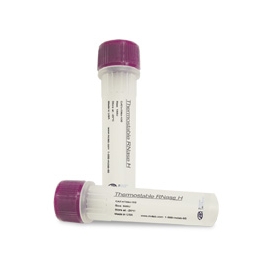 View full size
View full size
- Analýza nukleových kyselin
- Analýza proteinů
- Biochemické reagencie
- Enzymy
- Editování genů
- Klonování
- Klinická diagnostika
- STR kity - identifikace osob, určení otcovství a příbuznosti
- Laboratorní příslušenství
- Software
- A&A Biotechnology
- AdvancedSeq
- BioDynami
- Plant Cell Technology
Novinky
-
RANK 2026
Navštivte nás na jubilejním 20. ročníku odborné konference RANK 2026, která se uskuteční ve dnech 18. a 19. března v Pardubicích v ABC klubu. Konferenci pořádá Česká společnost klinické biochemie při ...
Více -
XXXV. Izakovičov memoriál 2025
S potěšením oznamujeme, že se zúčastníme prestižní konference XXXV. Izakovičov memoriál 2025, která se bude konat 8.–10. října 2025 v Grandhotelu Praha v Tatranské Lomnici na Slovensku. Izakovičov me...
Více -
1.československý kongres lékařské genetiky 2025
Na jaře se zúčastníme 1. československého kongresu lékařské genetiky, který se bude konat 2.-4. dubna 2025 v Kulturním a kongresovém centru Elektra v lázeňském městě Luhačovice. Tento jedinečný kong...
Více
 View full size
View full size
Description:
Thermostable RNase H has an optimal activity above 65°C and can be used up to 95°C. The enzyme degrades RNA in a DNA:RNA hybrid, maximizing sensitivity and selectivity without affecting DNA or unhybridized RNA.
Application:
- High hybridization stringency
- Specific hydrolysis of RNA in a DNA:RNA hybrid
- Diagnostic assay of DNA sequences by isothermal probe amplification
- Mapping of mRNA structures
Source:
A recombinant protein purified from E. coli, cloned the gene encoding the Thermus thermophilus RNase H.
Unit Definition:
One unit of the enzyme results in the acid-solubilization of 1 nmol of polyadenylic acid in the presence of an equimolar concentration of polythymidylic acid in 20 minutes at 45°C in 50 mM Tris-HCl(pH 7.5), 100 mM NaCl, and 10 mM MgCl2. Note: The unit assay is performed at 45°C because this is optimal for the Tm of poly(dT):poly(A). The optimal temperature for many applications may be considerably higher.
10X RNase H Reaction Buffer
500 mM Tris-HCl(pH 7.5)
1 M NaCl
100 mM MgCl2
pH 7.6 @ 25°C
Storage Buffer:
Supplied in 50% Glycerol containing 50 mM Tris-HCl (pH 7.5), 0.1 M NaCl, 1.0 mM DTT, 0.1 mM EDTA, and 0.1% Triton X-100.
Recommended Storage Condition: -20°C
Košík
Platební brána



